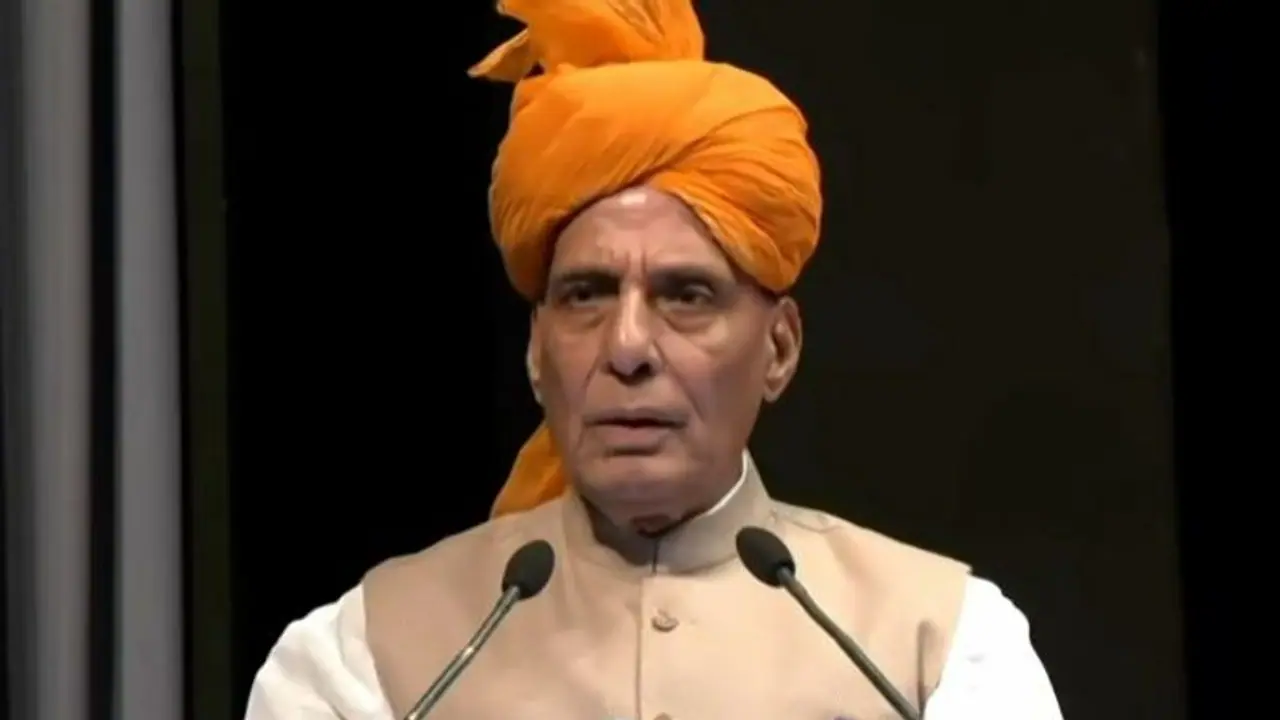Rajnath Singh said that India has witnessed a paradigm shift in its security scenario in the last nine years. While pointing out that India’s image in 2013-14 was that of a weak nation which allowed its adversaries to create problems, Rajnath said today the country has the ability to overcome every threat.
Pakistan has no locus standi on the territories it has illegally occupied in Kashmir, said Defence Minister Rajnath Singh on Monday while reiterating that Pakistan-occupied Kashmir is a part of India.

During his address at the National Security Conclave in Jammu on June 26, Rajnath recalled Pakistan's persistent efforts to disrupt peace and harmony in India through cross-border terrorism. However, he highlighted that since coming into power, the Indian government has taken decisive actions against terrorism, showcasing to the world the meaning of India's unwavering stance of 'zero tolerance against terrorism.'
The bold and unprecedented operations following the Uri and Pulwama incidents serve as a testament to this policy and the unmatched valour of the Armed Forces, Rajnath said while highlighting that India has successfully influenced the global perspective on terrorism, as evident in the joint statement issued after Prime Minister Narendra Modi's meeting with US President Joe Biden.
Rajnath further mentioned the significant weakening of the terrorism network in Jammu & Kashmir due to strict and consistent actions taken by the authorities. Measures have been taken to curb terror funding and disrupt the supply of arms and drugs to terrorists. Additionally, efforts are being made to dismantle the underground network of supporters along with eliminating the terrorists themselves.
Regarding Pakistan-occupied Kashmir, Rajnath asserted that Pakistan has no legitimate claim over the region as it has illegally occupied it. The Indian Parliament has passed multiple resolutions unanimously stating that PoK is an integral part of India.
Highlighting the abrogation of Article 370 in Jammu & Kashmir, the Defense Minister stated that this decision has integrated the people of the Union Territory into the country's mainstream and ushered in a new era of peace and progress.
Rajnath discussed the blueprint for national security, which revolves around four core principles: equipping the country to counter threats to its security and sovereignty, safeguarding national interests, creating safe conditions for progress and improving people's lives, and fostering an environment of collaboration with friendly nations to address global challenges like terrorism collectively.
He assured the nation that no efforts are being spared to equip the military with advanced weaponry and modern technology, asserting the full capability of the Armed Forces to protect the borders and the seas. The goal is to position the Indian Armed Forces at the forefront of modern militaries.
